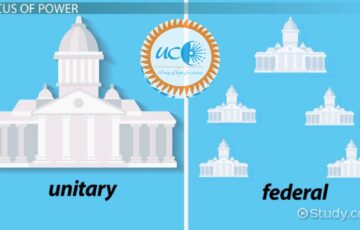No Supreme Court Benches will be available during winter vacation: CJI
Why in the News?
- The Supreme Court will not have a holiday bench when it takes its yearly winter vacation, the Chief Justice of India (CJI) recently stated.
- Although this court calendar has colonial origins, it has been the target of criticism for a while.
What are Court Vacations?
- About:
- The High Court operates for roughly 210 days, the Supreme Court for 193 working days, and trial courts for 245 working days per year.
- High Courts have the authority to organise their schedules in accordance with the service regulations.
- The summer and winter recesses, which the Supreme Court takes twice a year, are technically not closed to the public.
- Vacation Bench:
- A special Supreme Court bench chosen by the Chief Justice of India is known as a vacation bench.
- The Supreme Court is still a venue for litigants, and the Vacation Bench hears the case on the merits if the court determines that the plea is a “urgent matter.”
- Before vacation benches, cases involving bail, eviction, and other issues sometimes take precedence.
- It is not uncommon for courts to hear important cases during vacation.
- In 2015, a five-judge Bench of the Supreme Court heard the challenge to the constitutional amendment setting up the National Judicial Appointments Commission (NJAC) during the summer vacation.
- In 2017, a Constitution Bench held a six-day hearing in the case challenging the practice of triple talaq during summer vacation.
- Legal Provisions:
- The Division Benches have been designated by the Chief Justice of India under Rule 6 of Order II of The Supreme Court Rules, 2013, to consider urgent miscellaneous issues and regular hearing matters during the summer break.
- The rule states that the CJI may appoint one or more judges to hear all urgent cases that, under these rules, may be heard by a judge sitting alone during the summer or winter holidays.
- Additionally, when required, he may name a Division Court to hear urgent cases that must be heard by a bench of judges while the court is off.
What are the Issues with Court Vacations?
- Not Convenient for Justice Seekers:
- The long vacation which the courts obtain is not very convenient for justice-seekers.
- Not good Optics in Light of Pendency:
- Extended, frequent vacations are not a good look, especially given the rising backlog of cases and the sluggishness of the legal system.
- The vacation will cause additional, inescapable delays in listing cases for the average litigant.
- Incongruous with European Practices:
- The summer break perhaps began because European judges of the Federal Court of India found Indian summers too hot — and took the winter break for Christmas.
Way Forward
- The problem won’t be fixed until a “new method” for choosing judges is developed.
- Given the lengthy case pending times, the Justice Malimath Committee, which was established to make recommendations for changes to the criminal justice system, advised in 2000 that the vacation period be cut by 21 days. It was proposed that the Supreme Court sit for 206 days a year and the High Courts for 231 days.
- The Law Commission of India urged for reform of this system in its 230th report in 2009, stating that, in light of the alarming backlogs, vacation time for the higher courts must be reduced by at least 10 to 15 days, and court hours must be increased by at least 30 minutes.
- In 2014, when the Supreme Court notified its new Rules, it said that the period of summer vacation shall not exceed seven weeks from the earlier 10-week period.
UPSC Civil Services Examination, Previous Year Question (PYQ)
- With reference to the Indian judiciary, consider thefollowing statements: (2021)
- Any retired judge of the Supreme Court of India can be called back to sit and act as a Supreme Court judge by the Chief Justice of India with the prior permission of the President of India.
- A High Court in India has the power to review its own judgement as the Supreme Court does.
Which of the statements given above is/are correct?
(a) 1 only
(b) 2 only
(c) Both 1 and 2
(d) Neither I nor 2
Ans: (c)






